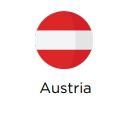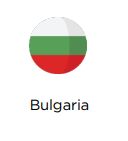- within Corporate/Commercial Law topic(s)
- in Australia
- with readers working within the Banking & Credit, Business & Consumer Services and Law Firm industries
- within Corporate/Commercial Law topic(s)
- in Australia
- within Corporate/Commercial Law, Immigration and Technology topic(s)
As part of the European Commission's agenda to simplify and enhance competitiveness in relation to sustainability reporting obligations under the Corporate Sustainability Reporting Directive (CSRD) and the Corporate Sustainability Due Diligence Directive (CSDDD), the EU adopted the Stop-the-Clock Directive in April 2025. This directive postpones reporting obligations for certain companies under both the CSRD and the CSDDD.
Member States are required to transpose these adjustments to the reporting timeline by 31 December 2025, but progress varies across jurisdictions. To help you navigate the changes where it matters most, we've summarised the latest legislative steps and timelines in the jurisdictions where Kinstellar operates. The table below shows the current status as of 1 September 2025.
| EU Member State |
Transposed? Yes / No / In progress |
Comments e.g. information about latest developments, timing updates, goldplating |
 |
No |
Neither the CSRD nor the CS3D has been implemented in Austria to date. However, a draft for the national implementation of the CSRD in Austria is currently awaiting approval in the national parliament (see here). This draft dates from 27 March 2025, though, and it is not clear when or if it will be adopted. According to the draft, there will be no "goldplating". Additionally, it should be noted that the draft still refers to the old CSRD without the updates of the "Stop the Clock" Directive. |
 |
No |
On 19 February 2025 the Bulgarian Parliament adopted an amendment to the Accountancy Act by which the sustainability reporting, as required under the CSRD, has been delayed by one year. After these amendments, large public-interest companies that have more than 500 employees will now have to prepare their first sustainability reports for the year 2025 instead of 2024. Other large enterprises will follow with their first reports covering 2026 instead of 2025 and the last group covering small and medium enterprises will prepare their first sustainability reports covering 2027 instead of 2026. The amendments to the Accountancy Act have been promulgated in the Bulgarian State Gazette and entered into force on 28 February 2025. Directive (EU) 2025/794 of the European Parliament and of the Council of 14 April 2025 amending Directives (EU) 2022/2464 and (EU) 2024/1760 as regards the dates from which Member States are to apply certain corporate sustainability reporting and due diligence requirements (the ""Stop the Clock" Directive") was adopted after the amendments to the Accountancy Act. With the "Stop the Clock" Directive, the reporting requirements are further delayed. At present, there have been no legislative proposals by the Bulgarian authorities to implement the "Stop the Clock" Directive. With its resolution № 541 dated 11 August 2025, the Council of Ministers has approved its legislative programme for the second half of 2025, which includes implementation of the "Stop the Clock" Directive, the process for which is currently planned to begin in November 2025 |
 |
No | The Croatian Ministry of Finance has announced that the Accounting Act and the Capital Market Act will be amended by the end of 2025 to align national legislation with the "Stop the Clock" Directive (EU) 2025/794 on sustainability reporting. No official steps have been taken by the Ministry in this regard at the moment. |
 |
In progress |
CSRD As the Czech transposition of the CSRD was divided in two phases, the second phase relating to the second and subsequent waves was being debated when the Stop-the-Clock Directive (Directive (EU) 2025/794) was adopted. This directive postponed key deadlines under both the CSRD and the CSDDD. The Czech draft legislation was subsequently revised to reflect the changes introduced by the Stop-theClock Directive and the amendments proposed by the ESG Omnibus proposals. Notably, the applicability threshold for companies was raised from 500 to 1,000 employees, and the phased approach was removed. This impacted the applicability threshold for additional companies in anticipation of forthcoming changes to the EU-level ESG Omnibus. It also excluded further waves of companies from the legislative text. This effectively implements the 'stop-the-clock' measure of postponing the extension of CSRD obligations. The revised legislation was approved by the Czech Parliament on 23 July 2025 and signed by the President on 21 August 2025, thus completing the legislative process. It is scheduled to be published and enter into force in the first half of September 2025. CSDDD As the Czech Republic has not yet transposed the CSDDD into national law, the Ministry of Justice, which is responsible for preparing draft legislation, has effectively paused work on transposing the legislation. According to the Ministry, further national legislative drafting would be premature until the revised EU framework is finalised. |
 |
Yes |
Accounting Act As of 20 June 2025, the Accounting Act has been amended by Act LIV of 2025, extending the deadlines for applying the sustainability reporting requirements as follows:
ESG Act The ESG Act has been amended by Act LI of 2025 with the effect of 20 June 2025, introducing the following significant changes to the scope and ESG reporting obligations:
Government Decree No. 276/2025. (VIII.21.)
Key Amendments to Certain ESG-Related Decrees
|
 |
Yes, through Ministry of Finance Order no. 1421/2025 on the dates from which certain sustainability reporting requirements apply ("Order no. 1421/2025"), published in the Official Gazette of Romania on 22 August, 2025. |
Order no. 85/2024 on sustainability reporting has been amended through this new Order no. 1421/2025. The deadlines once scheduled for 1 January 2025 are now moved to 1 January 2027, and those planned for 1 January 2026 have been pushed back to 1 January 2028. As a result, companies will first be obliged to report on the 2027 financial year (with submissions due in 2028) instead of 2025, and then on the 2028 financial year (due in 2029) rather than 2026. The postponement of reporting obligations did not affect the entities whose sustainability reporting obligations commenced in the financial year beginning on January 1, 2024 (those with more than 500 employees). |
 |
On 10 June 2025, the Slovak Parliament approved the amendments to the Securities Act and other acts (the Amendment), including amendments to the Accounting Act, which implemented the CSRD into Slovak law with effect from 1 June 2024. The Amendment implemented the "Stop the Clock Directive", which postponed ESG reporting obligations by two years i. e. from 2026 (for FYE2025) to 2028 (for FYE2027) and from 2027 (for FYE2026) to 2029 (for FYE2028). The postponement of reporting obligations also affected the largest companies (those with more than 500 employees in the two immediately preceding accounting periods), i. e. postponement from 2025 (for FYE2024) to the accounting period beginning no earlier than 1 January 2025, but no later than during 2026. The postponement provisions are effective as of 10 July 2025. The Amendment also stipulates that individual and consolidated financial statements, auditors' reports, annual statements, sustainability reports (in Slovak: Správy o udrľateµnosti) and assurance reports (in Slovak: Správy o uistení v oblasti vykazovania informácií o udrľateµnosti) on sustainability reporting will have to be reported to the specialized portal operated by the Financial Directorate of the Slovak Republic. This obligation applies to the mandatory reporting of documents after 9 January 2028, and in the case of voluntary reporting, after 9 January 2030. |
The content of this article is intended to provide a general guide to the subject matter. Specialist advice should be sought about your specific circumstances.

